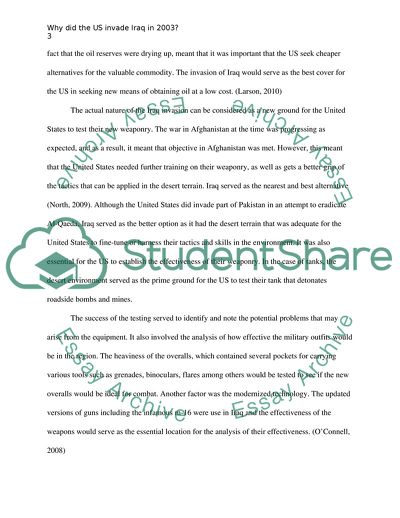Cite this document
(Why Did the US Invade Iraq in 2003 Research Paper, n.d.)
Why Did the US Invade Iraq in 2003 Research Paper. https://studentshare.org/military/1762685-why-did-the-us-invade-iraq-in-2003
Why Did the US Invade Iraq in 2003 Research Paper. https://studentshare.org/military/1762685-why-did-the-us-invade-iraq-in-2003
(Why Did the US Invade Iraq in 2003 Research Paper)
Why Did the US Invade Iraq in 2003 Research Paper. https://studentshare.org/military/1762685-why-did-the-us-invade-iraq-in-2003.
Why Did the US Invade Iraq in 2003 Research Paper. https://studentshare.org/military/1762685-why-did-the-us-invade-iraq-in-2003.
“Why Did the US Invade Iraq in 2003 Research Paper”. https://studentshare.org/military/1762685-why-did-the-us-invade-iraq-in-2003.


